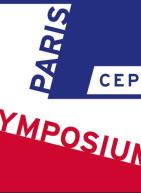DP18633 The main rift in the macro policy debate is between Neoclassicals and Neo-Austrians
The secular decline in real interest rates over the past four decades has invoked a fierce debate on macro policy. The distinction between Keynesians and Monetarist is no longer useful. It is more meaningful to distinguish between those who explain this decline from shifts in supply and demand of capital (referred to as Neoclassicals) and those who blame central banks (referred to as Neo-Austrians). Paradoxically, where Neo-Austrians are viewed as the ultimate believers in the blessings of free markets, their position requires a strong scepticism on efficacy of capital markets. Both views have widely different policy implications, both for the past decade of QE as well as for central banks’ subsequent response to the burst in inflation since 2022. The confusion among the public is partly due to the disciplines adherence in its teaching to the quantity theory of money, which is inconsistent with modern payment systems based on cash-accounts.

